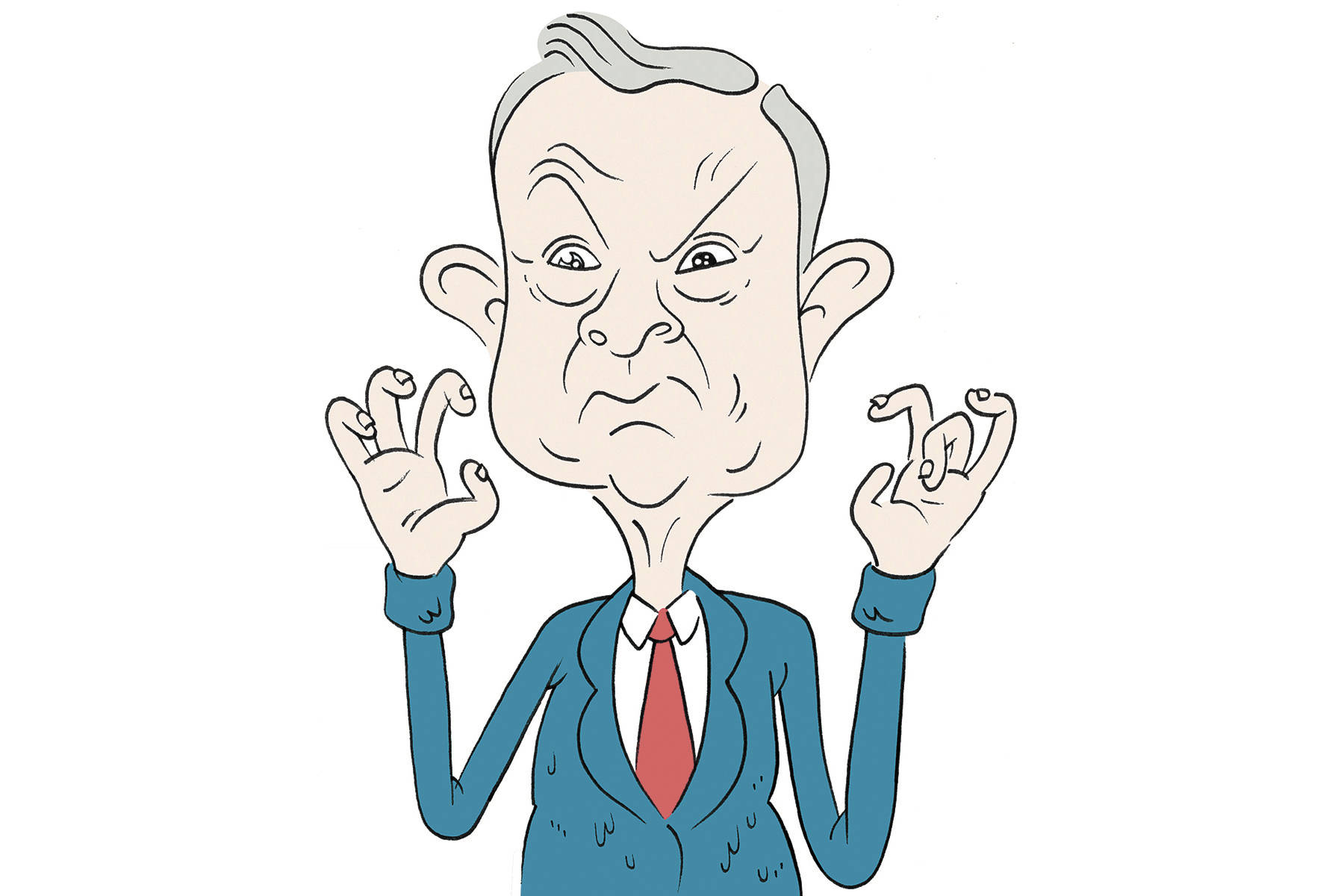In a letter that became public on Monday, June 12, it was revealed that U.S. Attorney Jeff Sessions personally asked Congressional leaders last month to end funding that restricts the Department of Justice from spending money to affect state medical-marijuana laws. What does that mean? Basically, that state-level medical-marijuana protections in place since 2014 would be gone.
“The Department must be in a position to use all laws available to combat the transnational drug organizations and dangerous drug traffickers who threaten American lives,” Sessions stated in a letter to Republican and Democratic House and Senate leadership. “I believe it would be unwise for Congress to restrict the discretion of the Department to fund particular prosecutions, particularly in the midst of an historic drug epidemic and potentially long-term uptick in violent crime.”
Sessions is going after the Rohrabacher-Farr amendment, introduced way back in 2003 to protect states that had legalized medical marijuana from the ubiquitous War on Drugs movement. It failed to pass six times, but was finally pushed through in 2014, as more and more states approved medical marijuana. Currently the amendment has plenty of bipartisan support.
The letter, obtained by Tom Angell, founder of the advocacy group Marijuana Majority, and verified independently by The Washington Post, stands in stark contrast to Trump’s campaign claims that he was “in 100 percent support” of medical marijuana. But contradiction is part and parcel of this administration. It made sense for Trump to appear supportive of medical cannabis; during his campaign, approval rates were around 85 percent. Right now, approval is at 93 percent.
Trump himself did not mention medical marijuana again until he gave lukewarm approval to the Rohrabacher-Farr amendment when it was kept in the $1.1 trillion spending bill he signed in May. However, in his signing statement, he pressed the point briefly: “Division B, section 537 provides that the Department of Justice may not use any funds to prevent implementation of medical marijuana laws by various States and territories. I will treat this provision consistently with my constitutional responsibility to take care that the laws be faithfully executed.” That last part is shorthand often used by past presidents to say, “I’m going to undermine or ignore this thing as soon as possible”—an interesting stance given that Rep. Dana Rohrabacher (R-CA) is one of the president’s firmest allies.
At the same time, Sessions has been quietly maneuvering to repeal the protections. He sent a sentencing memo to federal prosecutors, crafted with help from Stephen Cook, a former federal prosecutor notorious for “going hard” on drug-related convictions, that urged prosecutors to begin seeking the maximum penalties for crimes, including drug offenses. This means we could see a resurgence in mandatory minimums, a practice the Obama administration had backed away from.
This “historic drug epidemic and… uptick in violent crime” that Sessions suggests is also in stark contrast to, well, facts. The National Institute on Drug Abuse announced in April that many states were reporting a decrease in opioid overdoses and deaths in states that were legalizing cannabis. And the Uniform Crime Reporting Program, an FBI-maintained database, just reported a 12.5 percent drop in violent crimes in states bordering Mexico that have passed medical-marijuana laws. Jeff Sessions and the Trump administration are standing in direct opposition to facts, along with the will of the American people.
stashbox@seattleweekly.com







